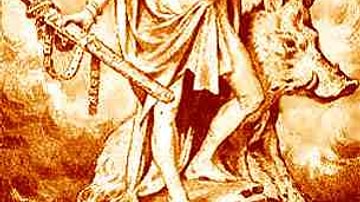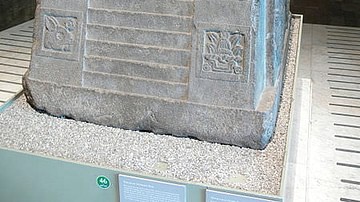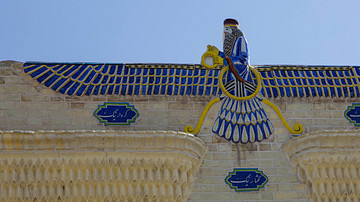Search
Search Results

Article
Most Popular Gods & Goddesses of Ancient China
There were over 200 gods and goddesses worshipped throughout ancient China, but if one were to count every deity or spirit, the number would be over 1,000. Each town, village, city, field, farm, and sometimes even separate plot in a graveyard...

Definition
Freyr
Freyr (Old Norse for 'Lord', sometimes anglicised as Frey) is the main fertility god in Norse mythology, his connection with harvests, sun and rain, virility, weddings, and his rule over wealth securing him an important position within the...

Definition
Mythology
Myths are a part of every culture in the world and are used to explain natural phenomena, where a people came from and how their civilization developed, and why things happen as they do. At their most basic level, myths comfort by giving...

Definition
Council of Chalcedon
The Council of Chalcedon was called in 451 CE by the Roman Emperor Marcian (r. 450-457) to settle debates regarding the nature (hypostases, "reality") of Christ that had begun at two earlier meetings in Ephesus (431 CE and 439 CE). The question...

Article
Throne of Montezuma
The magnificent stone monument variously referred to as the Monument of Sacred War, the Teocalli of Sacred War, the Temple Stone or, more simply, the throne of Motecuhzoma II (Montezuma), the Aztec king (tlatoani) who ruled at the time of...

Definition
Zarathustra
Zarathustra (also given as Zoroaster, Zartosht, Zarathustra Spitama, l. c. 1500-1000 BCE) was the Persian priest-turned-prophet who founded the religion of Zoroastrianism (also given as Mazdayasna “devotion to Mazda”), the first monotheistic...

Definition
Samuel
Samuel is a character in the Hebrew Bible and the Old Testament, uniquely depicted as having served several roles, as judge, military leader, seer, prophet, kingmaker, priestly official, and loyal servant of Yahweh. He is traditionally thought...

Interview
Interview: The Werewolf in the Ancient World by Daniel Ogden
In this interview, World History Encyclopedia is talking to author Daniel Ogden about his new book The Werewolf in the Ancient World. Daniel Ogden (Author): Thank you for inviting me! Kelly (WHE): Of course, we are very excited to have...

Article
Cain & Abel
Cain and Abel are the first two sons of Adam and Eve after they were expelled from the Garden of Eden in the biblical book of Genesis. According to the biblical story, Cain killed Abel because God accepted Abel's sacrifice but rejected Cain's...

Article
Dialogue of Pessimism
The Dialogue of Pessimism (c. 1000 BCE) is a Babylonian poem featuring a master and his slave in ten exchanges during which the master proposes an action, and the slave gives reasons for and against its pursuit. The piece has been interpreted...